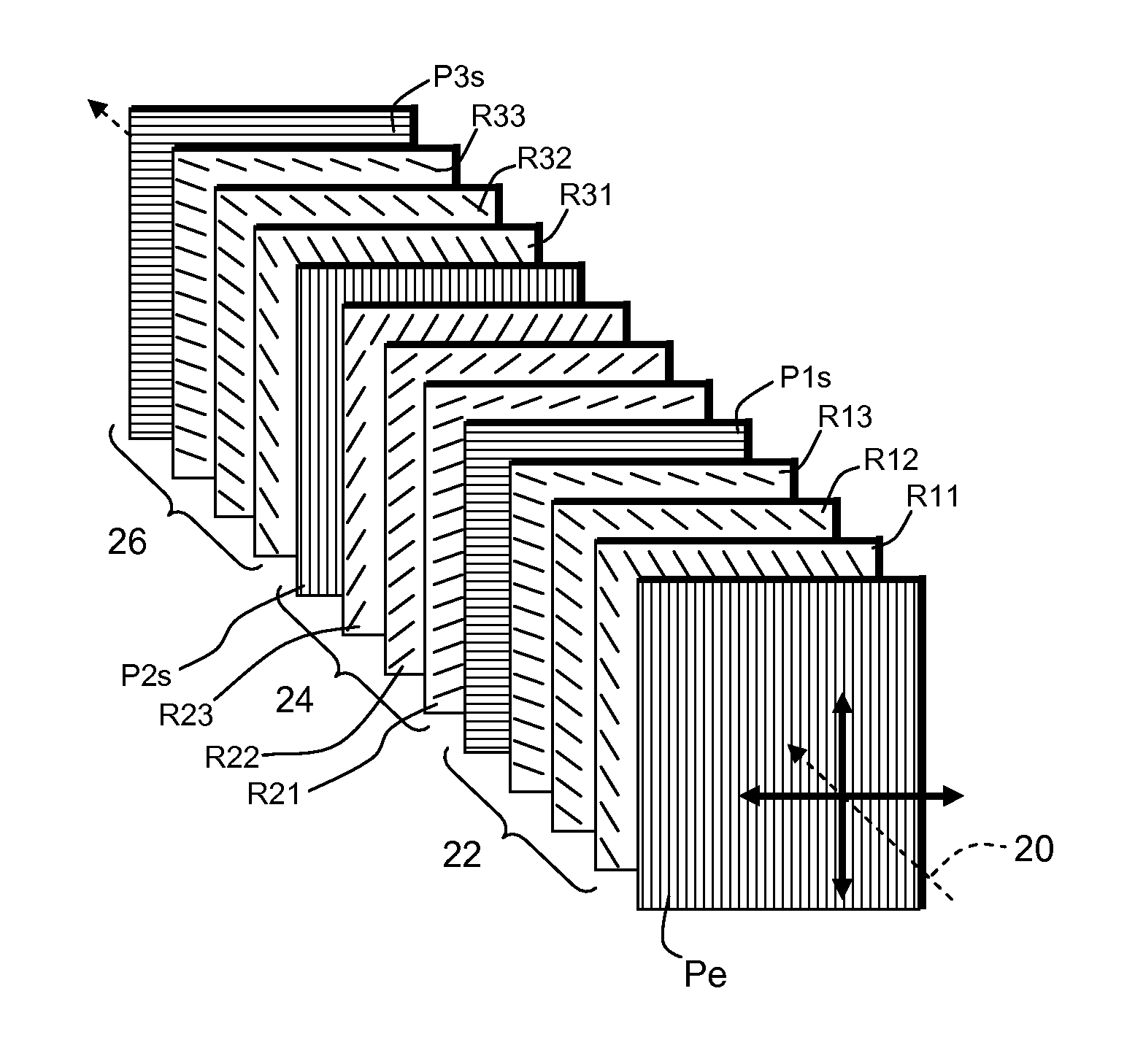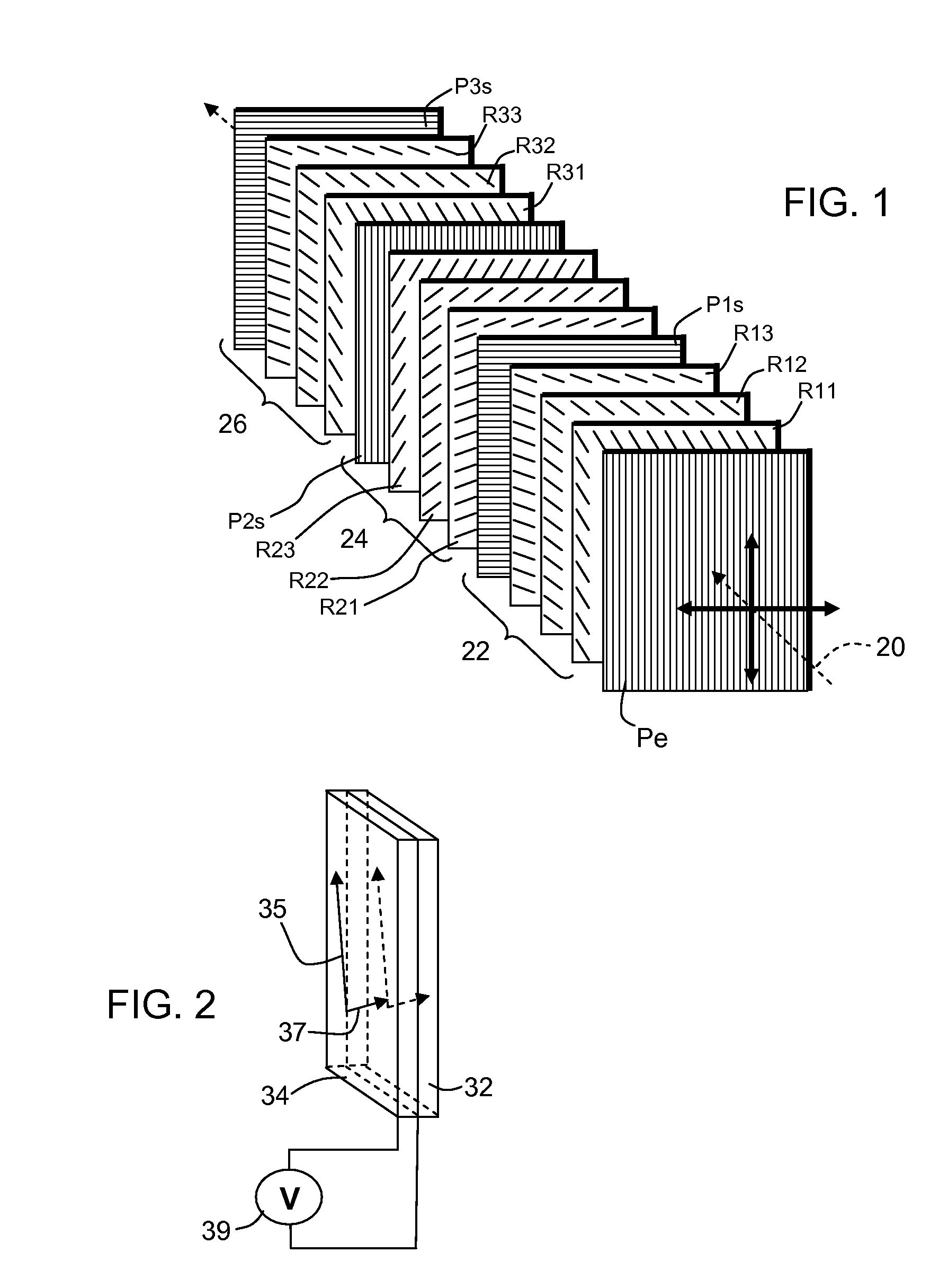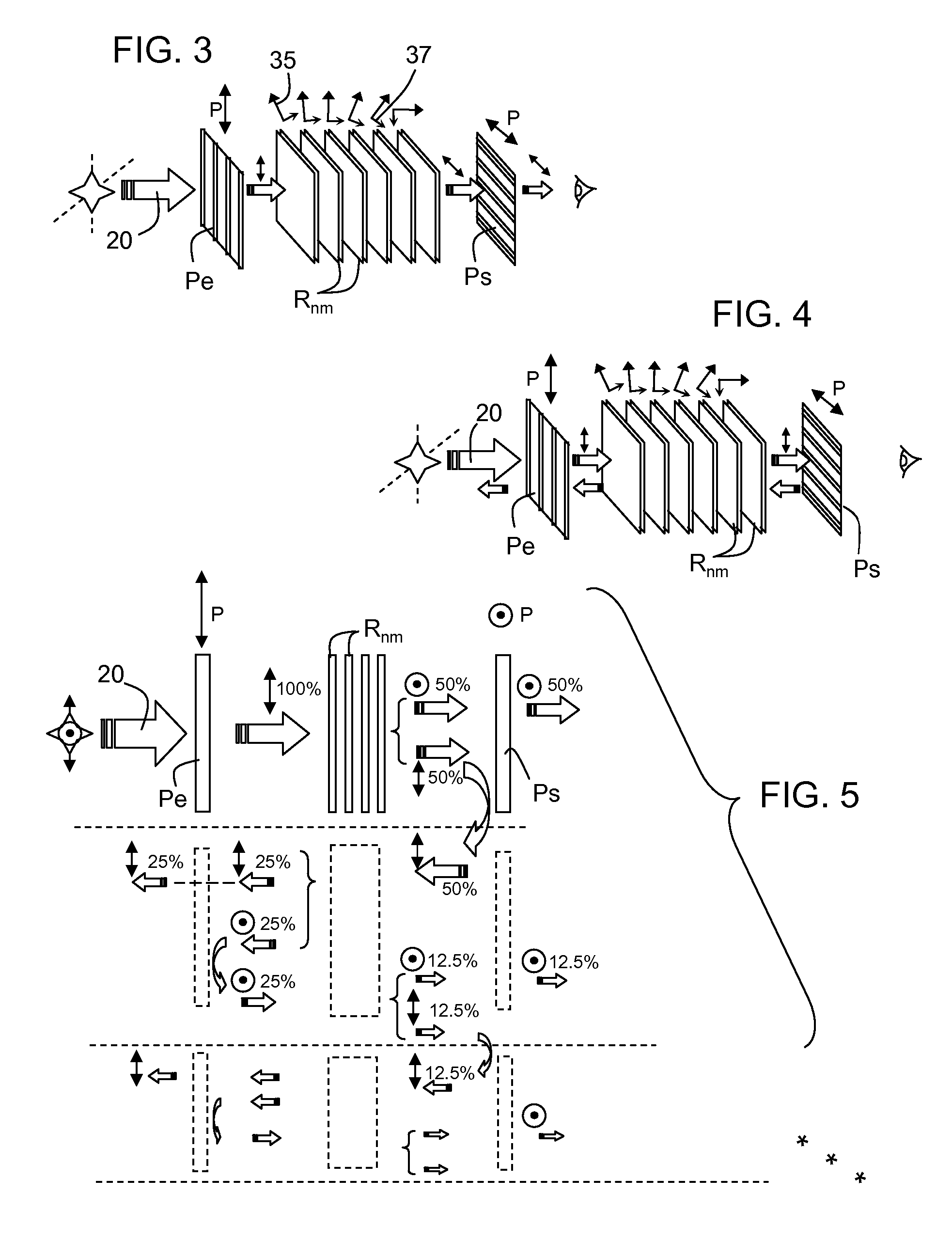Optical birefringence filters with interleaved absorptive and zero degree reflective polarizers
a birefringence filter and polarizer technology, applied in the field of optical filters, can solve the problems of reducing free spectral range, limiting the light energy transmission ratio of the pass band, and widening the pass band width, so as to improve the transmission ratio, limit the light energy transmission ratio, and improve the effect of transmission ratio
- Summary
- Abstract
- Description
- Claims
- Application Information
AI Technical Summary
Benefits of technology
Problems solved by technology
Method used
Image
Examples
Embodiment Construction
[0044]FIG. 1 shows the elements of a multiconjugate multi-stage liquid crystal tunable filter for discriminating between wavelength passbands versus other wavelengths. The filter comprises an input or entry polarizer Pe that has a given rotational orientation relative to a light signal that is propagating normal to the plane of the polarizer Pe, namely parallel to the dotted line arrow as shown. The light signal is an electromagnetic wave having orthogonal components. Depending on the nature of the light signal, the orthogonal components may be more or less parallel or perpendicular to the orientation of the input or entry polarizer Pe. The vector component that is parallel to the polarizer orientation is transmitted through the polarizer Pe, and the vector component that is perpendicular to the polarizer is not transmitted.
[0045] Following the entry or input polarizer Pe, plural cascaded filter stages are arranged along the light propagation path or zero-degree axis, the stages ea...
PUM
 Login to View More
Login to View More Abstract
Description
Claims
Application Information
 Login to View More
Login to View More - R&D
- Intellectual Property
- Life Sciences
- Materials
- Tech Scout
- Unparalleled Data Quality
- Higher Quality Content
- 60% Fewer Hallucinations
Browse by: Latest US Patents, China's latest patents, Technical Efficacy Thesaurus, Application Domain, Technology Topic, Popular Technical Reports.
© 2025 PatSnap. All rights reserved.Legal|Privacy policy|Modern Slavery Act Transparency Statement|Sitemap|About US| Contact US: help@patsnap.com



